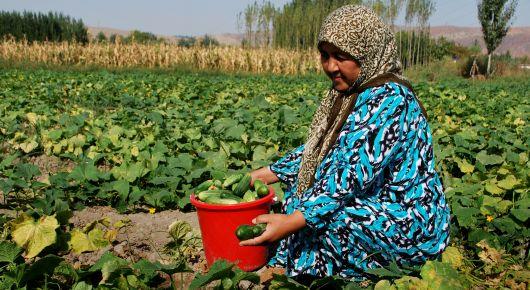Webinar underlined the extension and advisory services’ crucial impact on sustainable food systems

Across the globe, the pandemic revealed the extreme vulnerability of the agricultural sector. It has left governments confronted with multiple challenges to protect human lives, and livelihoods, as well as ensuring sufficient food supplies and basic services for the most needy.
Through a network of partners, agricultural extension and advisory service systems can play a key role in raising COVID-19 awareness to reduce the pandemic’s spread, while assisting in emergency operations, and ensuring that rural producers have relevant and accurate information, inputs, and services necessary for agricultural production and strong local value chains – both during and after the emergency period.
FAO, in partnership with the Regional Network of Global Forum for Rural Advisory Services, organized a webinar to discuss the role of extension and advisory services in the context of the COVID-19 pandemic, as part of a series of regional webinars, succeeding the online event for Asia and another on food systems. Examples from Azerbaijan, Central Asia, Hungary, North Macedonia, Tajikistan, and Ukraine were presented.
As Raimund Jehle, FAO Regional Programme Leader, noted in his opening remarks, the full implications of this “unprecedented situation” on the food and agriculture sector is still to be explored.
“Learning from each other, from other countries’ adequate measures, is crucial now. Thus the FAO webinar provides a key platform for countries and sectors to facilitate a multi-stakeholder dialogue across Europe and Central Asia,” Jehle added.
As lockdown measures continue to be lifted, “priorities shift to mitigating economic consequences,” said Nevena Alexandrova-Stefanova, FAO agricultural extension officer. She gave a general overview on how the work of extension and advisory services has changed in the past months and what to expect in the near future.
“We need to consider the lessons learned and turn them into opportunities for extension systems,” she suggested.
The full webinar is available on YouTube.
11 June 2020, Budapest, Hungary
